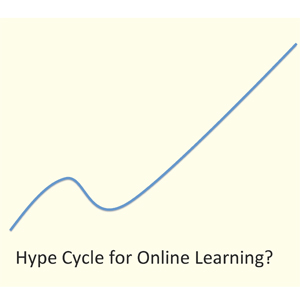 In June I participated in a workshop at MIT called “A Flipped Workshop: Hands-on MOOC Development”. Participants worked in teams of five and were given a “course packet” to develop their MOOC module. Our group were allocated the “Stanford Prison Experiment” – a chilling case study in research ethics abuse. Other groups worked on the course packets “Creative Commons” and “Economics”. Facilitators supported each team. Leading the workshop was Professor Isaac (Ike) Chuang, who has played a leading role in the development of the MIT-Harvard edX MOOCs initiative.
In June I participated in a workshop at MIT called “A Flipped Workshop: Hands-on MOOC Development”. Participants worked in teams of five and were given a “course packet” to develop their MOOC module. Our group were allocated the “Stanford Prison Experiment” – a chilling case study in research ethics abuse. Other groups worked on the course packets “Creative Commons” and “Economics”. Facilitators supported each team. Leading the workshop was Professor Isaac (Ike) Chuang, who has played a leading role in the development of the MIT-Harvard edX MOOCs initiative.
 Our group (see photo) comprised Dr Hayal Koksal (Turkey), myself, Prof Okhwa Lee (South Korea), Melody Nelson-Lyon (Canada) and Jules Seo (South Korea). The MIT TEAL laboratory (Technology Enhanced Active Learning) provides small group computer clusters in a circular table layout, each fitted with a conventional whiteboard, wall screen and a ceiling mounted video camera trained on the whiteboard area. Each setting is therefore a purpose-built flipped-classroom delivery system, allowing the participant to assemble pre-constructed elements of the virtual classroom, and seamlessly integrate these with live recordings of lecturer, demonstrating specific details of the lesson on the whiteboard. The lab is brightly-lit, comfortable and well-equipped, and located near the Vannevar Bush building and the Wright Brothers Wind Tunnel. There is a tangible sense that you are near one of the world’s most dynamic engineering and technology hotspots.
Our group (see photo) comprised Dr Hayal Koksal (Turkey), myself, Prof Okhwa Lee (South Korea), Melody Nelson-Lyon (Canada) and Jules Seo (South Korea). The MIT TEAL laboratory (Technology Enhanced Active Learning) provides small group computer clusters in a circular table layout, each fitted with a conventional whiteboard, wall screen and a ceiling mounted video camera trained on the whiteboard area. Each setting is therefore a purpose-built flipped-classroom delivery system, allowing the participant to assemble pre-constructed elements of the virtual classroom, and seamlessly integrate these with live recordings of lecturer, demonstrating specific details of the lesson on the whiteboard. The lab is brightly-lit, comfortable and well-equipped, and located near the Vannevar Bush building and the Wright Brothers Wind Tunnel. There is a tangible sense that you are near one of the world’s most dynamic engineering and technology hotspots.
On the way to the lab, I passed under a video announcement board suspended above MIT’s “infinite corridor” that proclaimed: “Are in-person lectures a thing of the past?” (see photo). The MOOCs that radiate from the edX platform are global experiments in testing that very question.


